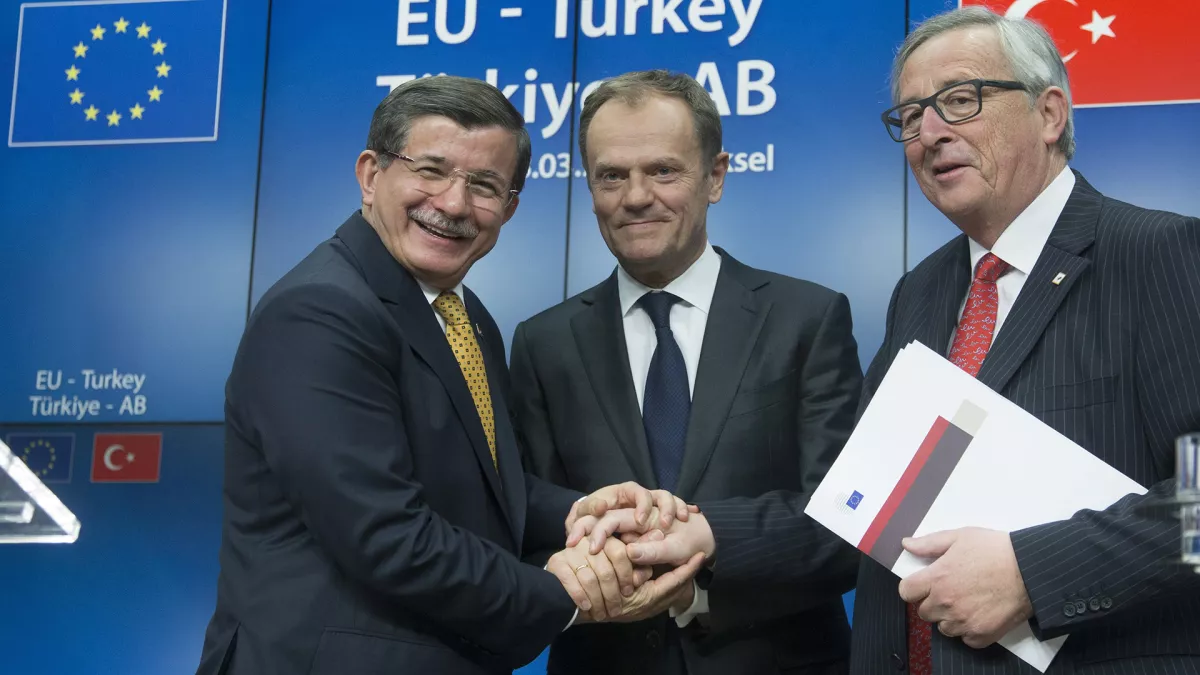Implications of upcoming German elections for Türkiye relations
Germany is approaching a critical election following the collapse of Chancellor Olaf Scholz’s three-party coalition. The election is significant as it will shape the country’s leadership, policies, and foreign relations, particularly with NATO-ally Türkiye.
Key issues dominating public debate include migration, economic stability, and environmental policies. Christian Democratic Union (CDU)/Christian Social Union (CSU) candidate Friedrich Merz is currently the front-runner for the chancellorship. If he wins, the Daily Sabah publication believes Germany’s relationship with Türkiye could shift, given his more conservative stance on migration and EU policies.
According to Ozan Demircan, Chief Reporter for the Chancellery with Media Pioneer, the CDU has traditionally maintained a more pragmatic approach toward Türkiye compared to the Social Democratic Party (SPD). Even during diplomatic crises, such as in 2017, the CDU kept open channels with Ankara. While giving an interview to the publication, he suggested that a Merz-led government could bring new priorities, potentially benefiting Türkiye.
The CDU/CSU has historically been a dominant force in German politics, but no single party is expected to win a majority. Coalition-building will ultimately determine the next government. Alongside CDU/CSU and SPD, other key parties in the election include the far-right Alternative for Germany (AfD), the Greens, the Free Democratic Party (FDP), The Left (Die Linke), and the Sahra Wagenknecht Alliance (BSW). The makeup of the ruling coalition will have major implications for Germany-Türkiye relations, given their deep economic, political, and historical ties.
Germany is home to the world’s largest Turkish diaspora, with around 3 million people of Turkish descent, including 1.5 million Turkish citizens eligible to vote in Türkiye’s elections. Additionally, Türkiye plays a crucial role in managing migration flows to Europe under the 2016 EU-Türkiye refugee agreement, which provides financial aid in exchange for Ankara preventing migrants from reaching the EU.

Demircan highlights that Merz advocates for a stricter migration policy than the current government. A CDU-led administration may seek to renegotiate or strictly enforce the EU-Türkiye refugee agreement, potentially impacting visa liberalization and financial support for Ankara. A tougher stance from Berlin could also lead to diplomatic tensions.
Beyond migration, past disputes between Germany and Türkiye—particularly regarding regional policies in Syria, Libya, and the Eastern Mediterranean—are likely to persist under Merz. He has repeatedly emphasized a trans-Atlantic orientation and has strong ties to the US, having served as the head of BlackRock’s Germany operations and as president of the nonprofit Atlantik-Brücke. As chancellor, he could push Ankara for clearer alignment with US policies on Russia and Iran.
Despite potential political tensions, economic ties between Germany and Türkiye remain strong. Germany is Türkiye’s largest trade partner, with annual bilateral trade exceeding $50 billion. Over 7,500 German companies operate in Türkiye, while Turkish businesses play a crucial role in Germany’s economy.

Demircan notes that the CDU has traditionally supported business-friendly policies, which could encourage more German investment in Türkiye, particularly in sectors such as mechanical engineering, automotive manufacturing, and renewable energy. However, Germany is currently in a deep recession, leading parties to prioritize domestic economic recovery. This could result in German companies focusing more on investments at home rather than expanding abroad. Additionally, Türkiye’s rising costs have made it a less attractive market for German businesses, forcing some companies to reduce their workforce.
Another key issue in economic relations is the modernization of the EU-Türkiye customs union. Türkiye has been pushing for an updated agreement to expand trade opportunities. Ankara’s role in energy transit has also grown in importance, especially as Germany seeks alternatives to Russian gas.
Overall, Germany-Türkiye relations are influenced by various factors, including migration, trade, security, and EU policies. The outcome of the German election will determine whether the relationship becomes more cooperative or confrontational in the years ahead.
By Nazrin Sadigova








